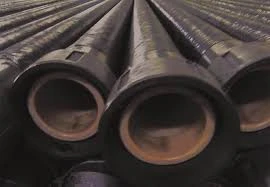
-
 Afrikaans
Afrikaans -
 Albanian
Albanian -
 Amharic
Amharic -
 Arabic
Arabic -
 Armenian
Armenian -
 Azerbaijani
Azerbaijani -
 Basque
Basque -
 Belarusian
Belarusian -
 Bengali
Bengali -
 Bosnian
Bosnian -
 Bulgarian
Bulgarian -
 Catalan
Catalan -
 Cebuano
Cebuano -
 China
China -
 China (Taiwan)
China (Taiwan) -
 Corsican
Corsican -
 Croatian
Croatian -
 Czech
Czech -
 Danish
Danish -
 Dutch
Dutch -
 English
English -
 Esperanto
Esperanto -
 Estonian
Estonian -
 Finnish
Finnish -
 French
French -
 Frisian
Frisian -
 Galician
Galician -
 Georgian
Georgian -
 German
German -
 Greek
Greek -
 Gujarati
Gujarati -
 Haitian Creole
Haitian Creole -
 hausa
hausa -
 hawaiian
hawaiian -
 Hebrew
Hebrew -
 Hindi
Hindi -
 Miao
Miao -
 Hungarian
Hungarian -
 Icelandic
Icelandic -
 igbo
igbo -
 Indonesian
Indonesian -
 irish
irish -
 Italian
Italian -
 Japanese
Japanese -
 Javanese
Javanese -
 Kannada
Kannada -
 kazakh
kazakh -
 Khmer
Khmer -
 Rwandese
Rwandese -
 Korean
Korean -
 Kurdish
Kurdish -
 Kyrgyz
Kyrgyz -
 Lao
Lao -
 Latin
Latin -
 Latvian
Latvian -
 Lithuanian
Lithuanian -
 Luxembourgish
Luxembourgish -
 Macedonian
Macedonian -
 Malgashi
Malgashi -
 Malay
Malay -
 Malayalam
Malayalam -
 Maltese
Maltese -
 Maori
Maori -
 Marathi
Marathi -
 Mongolian
Mongolian -
 Myanmar
Myanmar -
 Nepali
Nepali -
 Norwegian
Norwegian -
 Norwegian
Norwegian -
 Occitan
Occitan -
 Pashto
Pashto -
 Persian
Persian -
 Polish
Polish -
 Portuguese
Portuguese -
 Punjabi
Punjabi -
 Romanian
Romanian -
 Russian
Russian -
 Samoan
Samoan -
 Scottish Gaelic
Scottish Gaelic -
 Serbian
Serbian -
 Sesotho
Sesotho -
 Shona
Shona -
 Sindhi
Sindhi -
 Sinhala
Sinhala -
 Slovak
Slovak -
 Slovenian
Slovenian -
 Somali
Somali -
 Spanish
Spanish -
 Sundanese
Sundanese -
 Swahili
Swahili -
 Swedish
Swedish -
 Tagalog
Tagalog -
 Tajik
Tajik -
 Tamil
Tamil -
 Tatar
Tatar -
 Telugu
Telugu -
 Thai
Thai -
 Turkish
Turkish -
 Turkmen
Turkmen -
 Ukrainian
Ukrainian -
 Urdu
Urdu -
 Uighur
Uighur -
 Uzbek
Uzbek -
 Vietnamese
Vietnamese -
 Welsh
Welsh -
 Bantu
Bantu -
 Yiddish
Yiddish -
 Yoruba
Yoruba -
 Zulu
Zulu
fiberglass pipe fittings
Fiberglass Pipe Fittings A Comprehensive Overview
Fiberglass pipe fittings are integral components in various industrial applications, known for their lightweight properties, resistance to corrosion, and durability. Made from a composite of glass fibers and resin, these fittings enhance the overall performance of piping systems, especially in harsh environments. This article delves into the advantages, types, and applications of fiberglass pipe fittings.
One of the primary benefits of fiberglass pipe fittings is their exceptional resistance to corrosion. Traditional materials such as metal can deteriorate over time when exposed to harsh chemicals or moisture, leading to frequent maintenance and replacement costs. In contrast, fiberglass does not rust or corrode, making it ideal for chemical processing, wastewater management, and marine applications where chemicals can compromise the integrity of other materials.
Another significant advantage is their lightweight nature. Fiberglass pipe fittings are considerably lighter than metal counterparts, which simplifies transportation and installation. It reduces labor costs and time, as less support is needed during installation. Moreover, the ease of handling allows for greater flexibility in design and routing of piping systems.
fiberglass pipe fittings

Fiberglass fittings come in various types, catering to specific needs and applications. Common variations include elbows, tees, reducers, and flanges. Each type serves a unique purpose in directing flow, connecting pipes, and managing transitions in pipe size. The versatility of these fittings makes them suitable for a wide range of industries, including oil and gas, power generation, and water treatment.
Additionally, fiberglass pipe fittings exhibit outstanding thermal insulation properties. They can withstand extreme temperatures, which is crucial in industries where thermal conductivity can lead to energy loss or damage to the system. This characteristic further enhances their applicability in environments with fluctuating temperatures or in systems designed to transport heated or cooled liquids.
Sustainability is also a growing concern in today’s industrial landscape. Fiberglass fittings are increasingly recognized for their eco-friendly attributes. The production process often generates less waste compared to traditional materials, and their longevity reduces the need for frequent replacements, making them a more sustainable choice in the long run.
In conclusion, fiberglass pipe fittings represent a reliable and efficient option for various piping applications. Their corrosion resistance, lightweight design, versatility, thermal insulation properties, and sustainability align perfectly with the demands of modern industries. As technology continues to advance, the adoption of fiberglass fittings is likely to increase, further solidifying their role in the ever-evolving world of industrial piping solutions. Whether you're upgrading an existing system or planning a new project, considering fiberglass pipe fittings could lead to significant long-term benefits.









